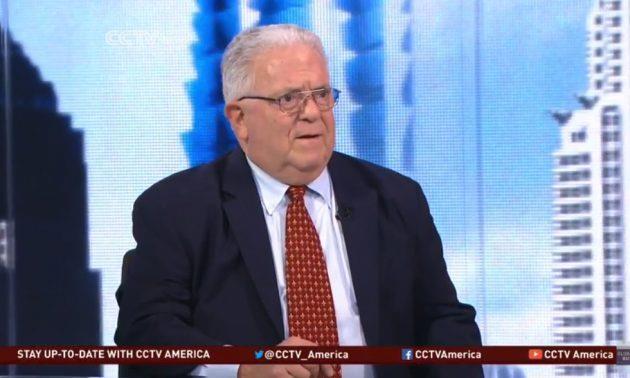
Freedom of navigation assertion a political delusion: former US diplomat
When the United States and China first laid the foundation for their current relationship, the Shanghai Communique set aside the vast political differences between the two countries.
Chas Freemen, a career diplomat who was the principal interpreter for US President Richard Nixon on his historic visit to China in 1972, recounted last week the then-president's insistence that the United States needs 'urgently to come to grips with the reality of China.'
In a , Freeman asserted that, despite the different circumstances under which Nixon spoke at the time, his words are relevant today. The principles of mutual respect identified in the Shanghai Communique are sound, Freeman argues, and it would be wise to reinstate them.
Policy makers in Washington have yet to come to grips with reality of China's rise. Of particular concern, Freeman says, is the fact that China is the only great power whose territorial extent and borders are disputed by the United States. And China's claims in the South China Sea present a threat to America's futile desire to hold on to predominance in the region:
[The South China Sea] is where the US Navy comes face-to-face with the reality that it no longer has the seas off China to itself but must share them with the Chinese navy and coast guard […] But the United States has no claims of our own, and the only issues at stake are symbolic and derived from our desire to remain at the apex of the regional pecking order.The assertion that the face-off in the South China Sea is about 'freedom of navigation' is political paralogia – 'fake news' embedded in a misleading narrative that has been repeated so often that it is now an emotionally charged commitment. The Spratly Islands were long marked on charts as 'dangerous ground' that ships should avoid. They are well off the shipping lanes. About two-thirds of the commerce that traverses the South China Sea is on its way to or from China, giving the Chinese a greater interest than anyone else in protecting rather than disrupting freedom of navigation there.
Freeman goes on to explain that it is not just China's rise that is already diminishing American relevance in the Asia-Pacific, it is the growing importance of everyone else, as well:
US primacy no longer reflects the realities in a region where Japan is restoring itself to greatness, and still other nations, like both Koreas, Vietnam, Indonesia, and India have grown into powerful independent economic, military, cultural, and political actors. Neither these nations nor an increasingly powerful China can be denied a role in the regulation of regional matters they see as integral to their national defense and economic prosperity. Behaving as though, in the new context, Americans can continue unilaterally to command the region will not work. Such a posture is more likely to breed regional dissatisfaction with the status quo than to buttress it.
The US response to its decreasing influence around the globe has been woefully misguided, Freeman argues, and is in need of a drastic reexamination:
The American reaction to our progressive displacement as number one by China has closely followed the offensive realist script. As a nation, we are in a whiny, belligerent frame of mind. We blame Russia for the way we vote. We blame everybody but ourselves for the mess in the Middle East and for our trade and balance of payments deficits and the deindustrialization of our job market. We are dismissive of expertise, especially that of economists, the majority of whom tell us that our problems derive from our pathetically inadequate national savings rate, our disinvestment in our human and physical infrastructure, shortcomings in the way we retrain and find employment for workers displaced by automation, a relationship between labor and management that reacts to competition by outsourcing, rising income inequality, irrational immigration policies, the misdirection of investment by a tax code designed to protect vested interests, and gridlocked government. It's far easier to blame foreigners in China, Mexico, Canada, Germany, Korea, or Japan for our underachievement than to reexamine and change our own policies and practices.Must-reads from across Asia - directly to your inbox Comments

Legal Disclaimer:
MENAFN provides the
information “as is” without warranty of any kind. We do not accept
any responsibility or liability for the accuracy, content, images,
videos, licenses, completeness, legality, or reliability of the information
contained in this article. If you have any complaints or copyright
issues related to this article, kindly contact the provider above.


















Comments
No comment